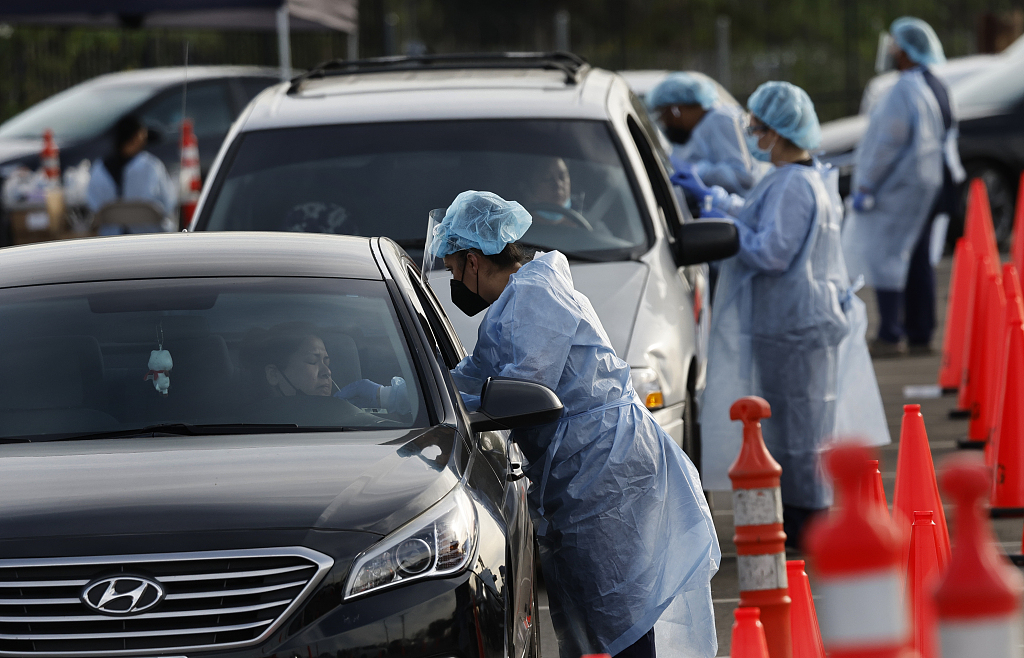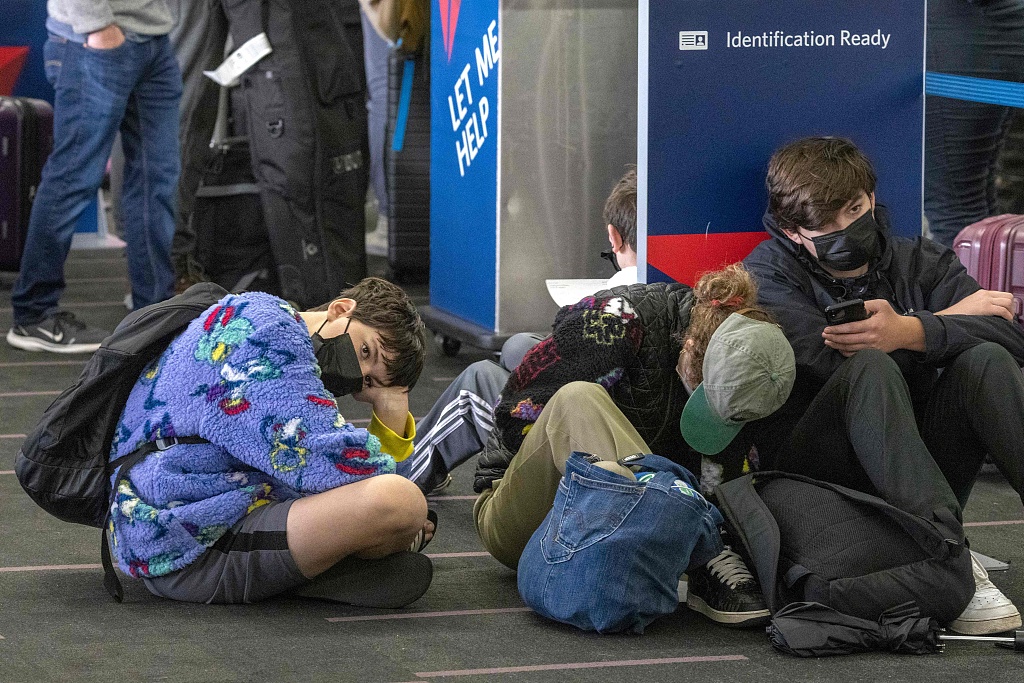
Healthcare workers administer COVID-19 tests at a drive-thru mega testing site in Norwalk, California, January 12, 2022. /CFP
Healthcare workers administer COVID-19 tests at a drive-thru mega testing site in Norwalk, California, January 12, 2022. /CFP
Public health officials in the United States are frustrated by a fractured and undervalued health data infrastructure in the battle against COVID-19, calling the lack of accurate and real-time information "one of the greatest failures of the U.S. response to the COVID-19 pandemic," CNN reported.
As the Omicron wave recedes in the United States, public health officials are faced with a new round of decision-making on the best way for the country to move forward, but they are challenged by "a fractured and undervalued health data infrastructure," the report said Thursday.
It is a problem that has long plagued the United States and one that has hindered the ability to respond swiftly and pointedly to the COVID-19 pandemic since the beginning, it said.

Members of the U.S. Congress participate in a moment of silence to mark the passing of 900,000 people due to COVID-19 at the Capitol in Washington, D.C., February 7, 2022. /CFP
Members of the U.S. Congress participate in a moment of silence to mark the passing of 900,000 people due to COVID-19 at the Capitol in Washington, D.C., February 7, 2022. /CFP
"Our data modernization infrastructure for governmental public health is just really nonexistent. So when you think about having to pivot quickly with new metrics and how that data gets collected and reported and accumulated, aggregated, de-aggregated, it can be daunting," Lori Tremmel Freeman, chief executive officer of the National Association of County and City Health Officials, was quoted by CNN as saying.
"It's difficult not just during pandemic times, but even more difficult during the pandemic," he said.
The data failings of the U.S. public health system are many and varied, tainting nearly every decision-driving metric in one way or another.
"Lack of accurate, real-time information was one of the greatest failures of the U.S. response to the COVID-19 pandemic," Tom Frieden, former director of the U.S. Centers for Disease Control and Prevention, said.
The reported also pointed out that the most "glaring hole" in the U.S. coronavirus data is on race and ethnicity, noticing over one in three cases and over one in six deaths "is missing race and ethnicity identifiers" and some one in four vaccinations "is missing race and ethnicity data" as well.

Travelers at an airport wait in line after their flights are canceled due to the COVID-19 pandemic, Los Angeles, California, U.S., December 23, 2021. /CFP
Travelers at an airport wait in line after their flights are canceled due to the COVID-19 pandemic, Los Angeles, California, U.S., December 23, 2021. /CFP
Communities of color in the U.S. were "disproportionately affected by COVID-19," but the lack of "granular demographic data around COVID obscures those realities, I think, in pretty significant ways," Beth Blauer, executive director of the Centers for Civic Impact at Johns Hopkins University and data lead for the Coronavirus Resource Center, was quoted by CNN as saying.
"What the pandemic has really brought to light are gaps and fissures that we knew existed but maybe others outside of public health didn't know existed in the same way and weren't invested in trying to solve the problem," Janet Hamilton, executive director of the Council of State and Territorial Epidemiologists, was quoted by CNN as saying.
"Our nation (the U.S.) had a patchwork of underfunded, understaffed, poorly coordinated health departments and decades out-of-date data systems, none of which were equipped to handle a modern-day public health crisis," Frieden added.
(With input from agencies)

